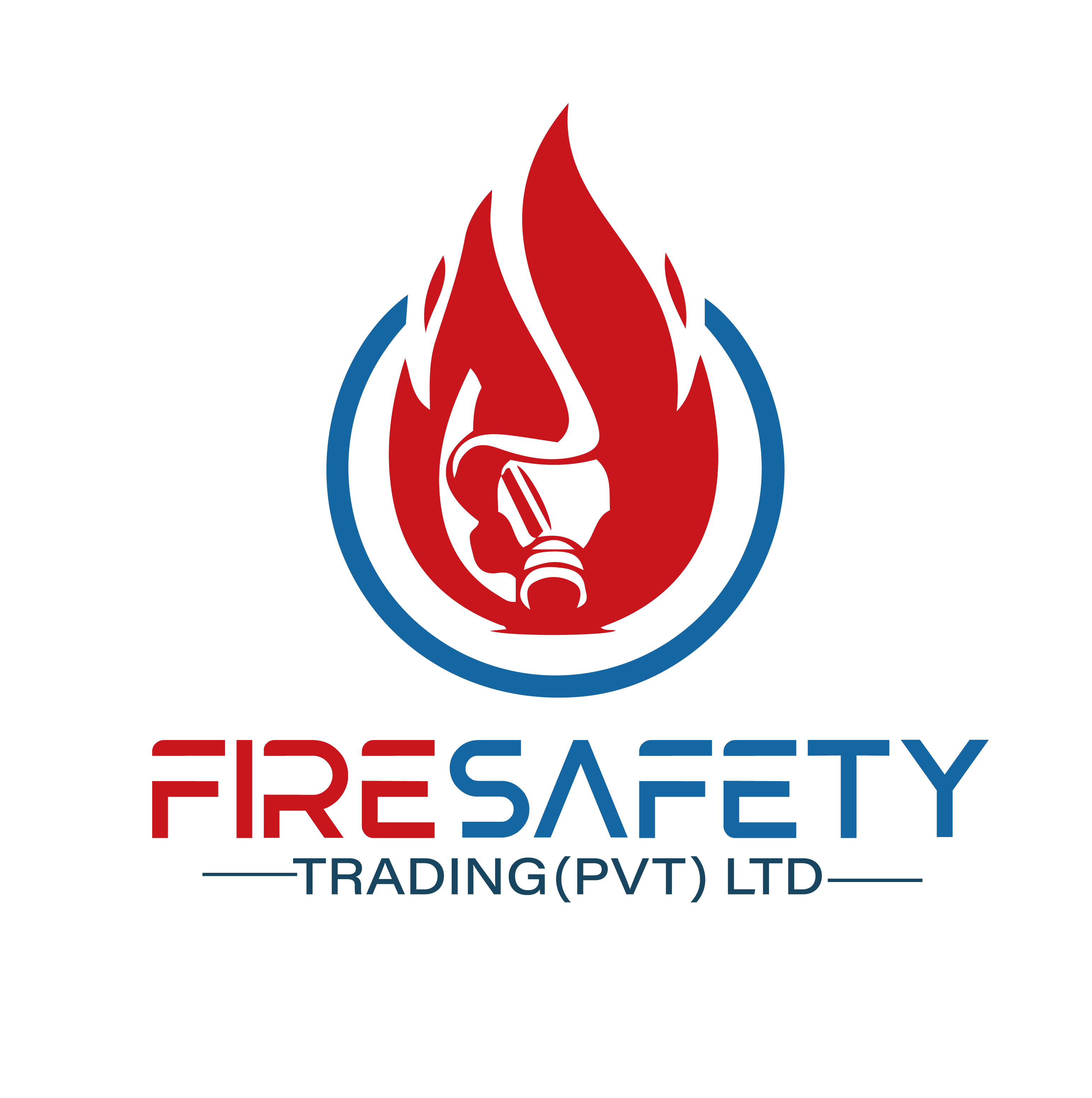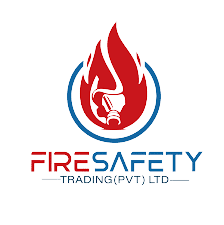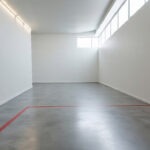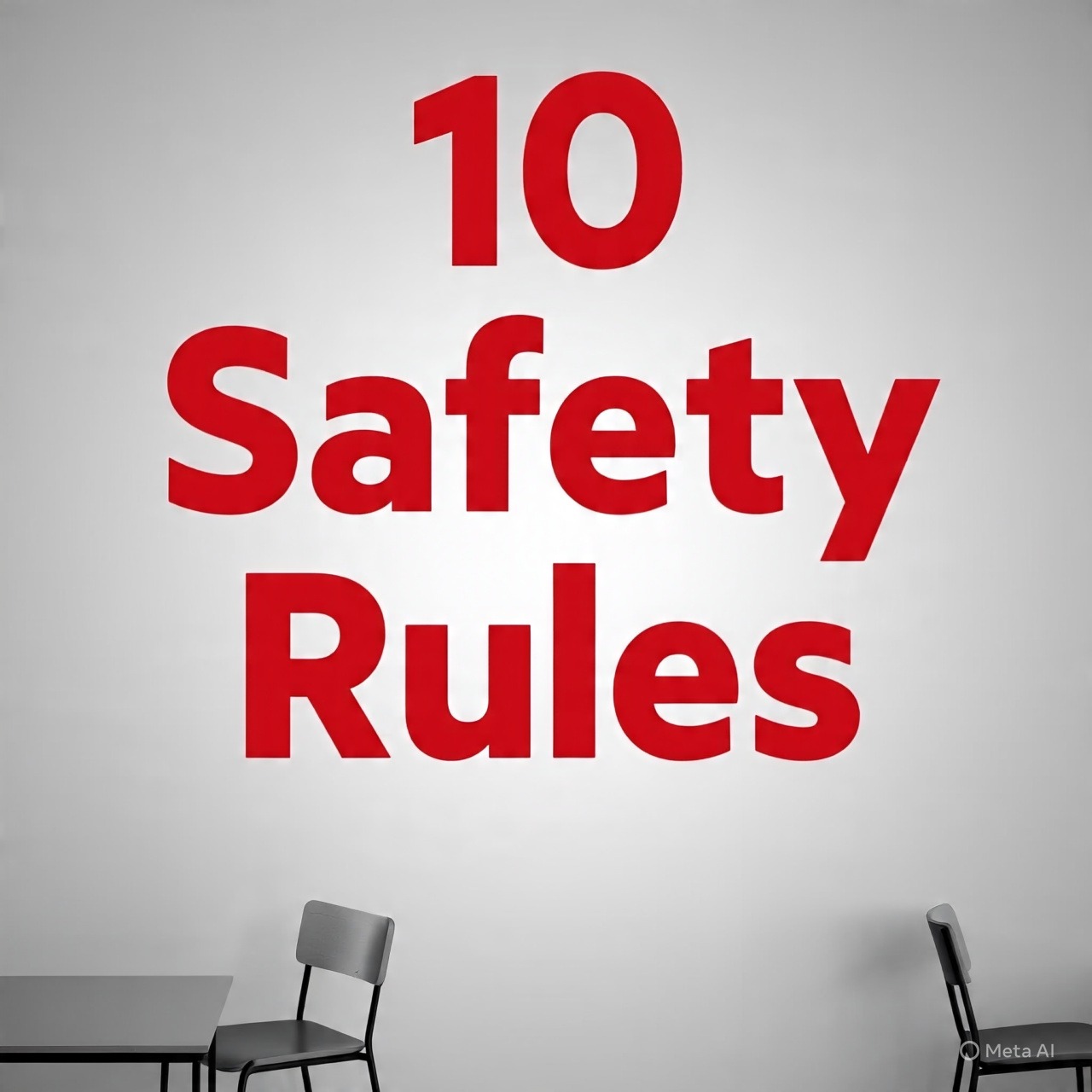Safety is not just a set of instructions written on a board, it is a culture that protects people, homes, and workplaces from preventable accidents. In cities like Islamabad, where rapid development has increased the number of offices, residential complexes, and industries, knowing the right safety rules can save lives. From proper use of fire safety equipment to simple day-to-day practices, these rules are essential for everyone.
In this article, we will discuss ten important safety rules that every individual and workplace in Pakistan should follow. These rules are not complicated; they are practical and easy to apply in daily life.
1. Always Know the Location of Fire Safety Equipment
Every building in Islamabad, whether it is an office, school, or shopping mall, must have essential fire safety equipment such as fire extinguishers, hose reels, smoke detectors, and alarms. But equipment is only useful if people know where it is placed.
Make it a habit to notice the emergency exits and the position of fire extinguishers whenever you enter a new building. In case of an emergency, this small step could mean the difference between control and disaster.
2. Keep Emergency Exits Clear
Blocked exits are one of the most common safety violations in Pakistan. Storing boxes, furniture, or vehicles in front of emergency doors can trap people during an emergency. This rule is simple: emergency exits must remain clear at all times.
In large cities like Islamabad, where commercial plazas are always crowded, exit pathways should be regularly checked by building managers and security staff. Quick evacuation is only possible when pathways are free from obstacles.
3. Learn How to Use Fire Extinguishers
Owning fire extinguishers is important, but knowing how to operate them is equally critical. Many employees in offices have never practiced using one, which creates panic during real emergencies.
The basic method, called the PASS technique, Pull, Aim, Squeeze, and Sweep, should be taught during safety drills. This simple training allows ordinary people to control small fires before they spread. In Islamabad, where new housing projects and high-rise offices are increasing, such knowledge is more important than ever.
4. Do Not Overload Electrical Circuits
Electrical fires are among the leading causes of accidents in Pakistan. Plugging too many devices into one socket or using substandard wiring creates overheating. A single spark can set an entire office or home ablaze.
A safety rule worth remembering is to invest in proper wiring and never overload circuits. Along with this, surge protectors and circuit breakers should always be installed. These measures, combined with modern fire safety equipment, reduce the chances of large-scale damage.
5. Conduct Regular Safety Drills
Knowing the rules on paper is not enough; practice makes safety effective. Schools, offices, and factories in Islamabad should arrange quarterly fire and evacuation drills.
Drills create awareness, reduce panic, and help people respond faster when real emergencies occur. They also test whether the fire alarms, smoke detectors, and sprinkler systems are functioning properly. A well-organized drill gives confidence to both employees and visitors.
6. Store Flammable Materials Safely
Petrol, paint, cleaning chemicals, and gas cylinders are all highly flammable. Keeping them in open areas or near heat sources is a direct violation of safety principles.
Flammable items should always be stored in proper containers and kept in ventilated storage spaces. For workplaces like workshops and factories in Islamabad, investing in approved storage cabinets is not just recommended, it is legally required under Pakistan’s building safety regulations.
7. Ensure First Aid Kits Are Available
Accidents cannot always be prevented, but immediate response can minimize injuries. Every workplace and home should have a well-equipped first aid kit. Items like burn ointments, bandages, antiseptic solutions, and scissors should be regularly checked and replaced when expired.
Linking first aid with fire safety equipment is essential. For example, while extinguishers control flames, first aid kits treat burn injuries until professional medical help arrives. This combination ensures complete protection.
8. Report Hazards Immediately
One of the most ignored safety rules is timely reporting. A broken wire, a leaking gas pipe, or a faulty smoke detector should not be left for “later.” Reporting hazards immediately to management or building authorities prevents them from turning into disasters.
In Islamabad, where hundreds of new construction projects are active, hazard reporting is even more critical. Workers and residents should be encouraged to speak up about safety concerns without fear of blame.
9. Install and Maintain Smoke Alarms
Smoke alarms are often underestimated in Pakistan, yet they are the first line of defense in detecting fire before it spreads. Installing alarms in key areas such as kitchens, basements, and hallways can save lives by providing early warnings.
However, installation is only half the job. Batteries and sensors must be checked regularly. A non-functional alarm is as dangerous as not having one at all. For new apartment complexes in Islamabad, building owners should make alarms mandatory in every unit.
10. Always Have an Evacuation Plan
An evacuation plan is more than just arrows painted on walls. It is a detailed map of how people should leave a building safely during emergencies. Families should discuss their exit routes at home, while businesses must display clear evacuation charts on every floor.
Emergency lighting, backup power, and audible alarms support evacuation plans. With proper preparation, panic is reduced and lives are saved.
Why These Rules Matter for Islamabad
Islamabad is a rapidly growing city with modern offices, shopping malls, and residential projects. With this growth comes the responsibility of ensuring safety standards. Following these ten rules not only protects individuals but also strengthens community resilience.
By making fire safety equipment accessible and combining it with these safety practices, the risk of large-scale disasters can be reduced. For businesses, compliance also helps in meeting local safety regulations, avoiding legal issues, and building trust with customers.
Final Thoughts
Safety is not about fear, it is about responsibility. The ten rules outlined here are simple, practical, and suitable for both homes and workplaces in Islamabad. Whether it’s keeping exits clear, practicing drills, or learning to use fire extinguishers, each step creates a safer environment for everyone.
For those who want to explore a complete list of fire protection solutions, you can check the detailed fire safety equipment available through trusted suppliers in Islamabad.
Following these rules consistently ensures that safety becomes a daily habit rather than an afterthought. And when safety is part of daily life, communities thrive without the constant threat of preventable disasters.





